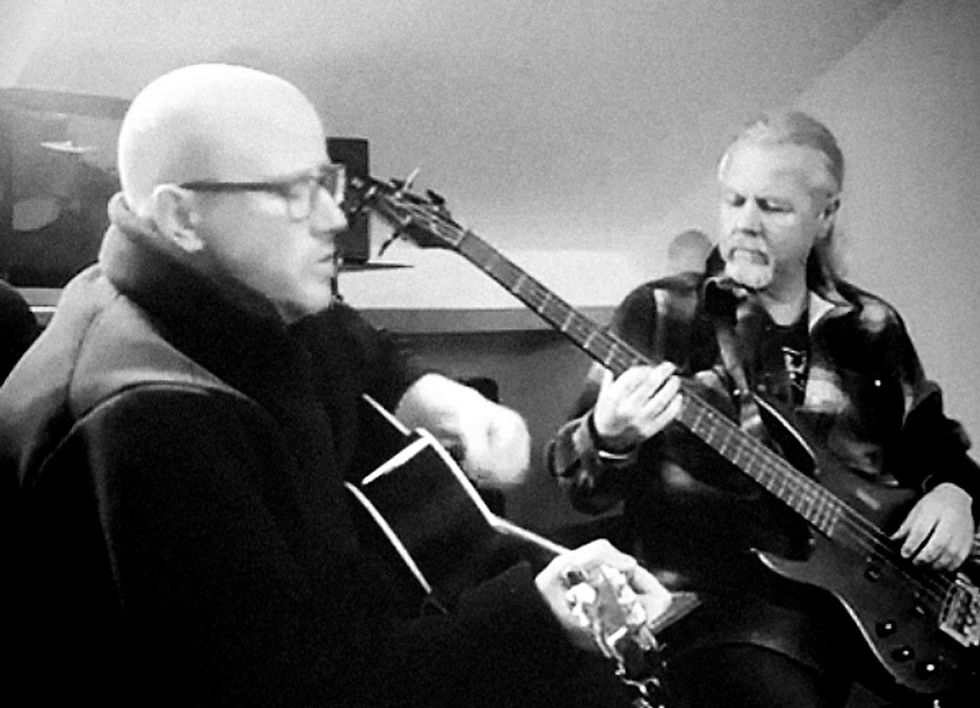A warm feeling amid a Donegal winter
- Phil MacGiolla Bháin

- Nov 18, 2024
- 3 min read

BY THE time you have this in your hands, this fella in Dún na nGall will be preparing to hibernate in Hibernia. The Romans took the word from the Greek, thinking that it meant ‘the land of winter.’
When we moved here in November 1996—a week after our firstborn's fourth birthday—a neighbour had a cautionary tale for us. First off, she meant the best. Looking back, I
reckoned that the woman thought we might not have lasted those dark months without help.
“It gets freezing here,” she warned us. She made Cloich Cheann Fhaola in December sound like a rematch of the Battle for Moscow, but it was delivered with the best of intentions toward our young family.
The day after this ominous meteorological prediction, a hillside of turf chugged down the driveway with the woman’s son at the controls of the venerable tractor. The neighbours were making sure that the home fires kept burning.
For my four-year-old son—who was something of a tractor groupie at the time—this was better entertainment than we could ever have conjured up by feeding 20p pieces into lumps of moving plastic at the Forge Shopping Centre.
It was heartwarming in every sense; two blow-ins, with a toddler, an infant and one on the way, were welcomed unequivocally to their townland.
When our neighbour warned us about the imminent ice age, it didn’t seem appropriate to say that when our daughter had been born in Glasgow the previous December, it had been 17 degrees below—I remain stubbornly in the old money, Fahrenheit—in the city.
Moreover, I was a graduate of the winter mountaineering programme at Glenmore Lodge and had dug many comfy snow holes on the Cairngorm plateau.
On the night my daughter was born, it truly was Battle for Moscow in that beautifully barren area of Scotland.
During my mountaineering training, one lecturer stated that the plateau was ‘just 500 feet short of being a glacier.’
Despite the apocalyptic warning from our new neighbour, there were very few snowfalls for us to cavort in.
One of the many things I had crammed into the van for big repatriation was a canary yellow plastic sled. As I write this, I wonder what our neighbours thought when they saw the newcomers hurtling down a steep field in front of our home one day. Happily soaked and breathlessly laughing, our little brood and their dad retired to a roaring turf fire and mammy’s soup.
Despite the occasional picturesque powdering of Mount Errigal at our front door, I never had to use any of my winter mountaineering equipment in Cnoic Dhoire Bheatha. The ice axe and crampons weren’t needed in all my time in the Donegal Mountain Rescue Team. Still, the mountains here, covered with early morning snow, are a vista that lifts spirits.
As they grew here, my young brood became very familiar with An Mhucais, the flat-topped mountain ideal for a picnic odyssey on a summery day. When the sandwiches were passed out, it was uncomplicated happiness. On the pig’s back!
It makes me quite sad to think they might be the last generation to be truly free of the smartphone screen.
I wouldn’t have dreamed of having them there in the winter though. Even without snow and ice, the mountains here can be hazardous. Driving rain, darkness closing in quickly and low temperatures are a nasty combination for the unfit and unprepared.
Of course, there are other forms of coldness.When our people came to Scotland during the time of An Gorta Mór, there was a cultural deep freeze. They needed our labour, sweat and toil, but the message was clear: we weren’t welcome or valued as a people. Respect wasn’t on offer.
When we made the journey back home with our little family, it was before I knew that, in a sense, I hibernate in the winter.
Seasonal Affective Disorder existed; it was just that I didn’t know that I was susceptible to it. The plummeting temperature doesn’t get to me, but the lack of daylight does.
A few Christmases ago, my brood got their old dad a lightbox. I usually have an in-built resistance to such new fads and gimmicks, but this one actually works.
Now, as I approach the winter of my own life, I smile when I think of those first cold months in Cloich Cheann Fhaola and what they meant for the wee Irish people we were rearing. Truth be told, it gives me a lovely warm feeling.
Phil MacGiolla Bháin is an author, playwright and journalist based in Donegal. He was a staff reporter and columnist on An Phoblacht for many years. His novel Native Shore, a political thriller with a strong Glasgow Irish theme, is available at Calton Books







Comments